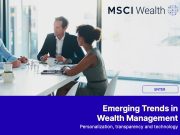Why Advisors end up Focusing on Insurance, Estate Products, Less on Investments?
Insurance and Estate Products – Most advisors focus on these products over time, less on investments. Why?
When managing portfolios & investments, a few positions sometimes curiously outperform +70%, while the sum allocated is only 5% (or much lesser) which impacts the portfolio by only +3.5%, in this case.
If you sum up the entire portfolio including (insurance), account for foreign exchange properly (base currency before conversion), many clients observe that they end up achieving a paltry – 2% p.a. to + 5% p.a. returns over 5 to 10 years.
In other words, after all the complex financial advisory work, it didn’t achieve the intended financial objectives.
Not true … …
No.1 The Magic of Financial Advisory is Simple
If a client accumulated $200,000 over 10 years, he or she might have splurged $50,000 on a car or expensive vacation. Now that money is being managed, the money can’t be used. That becomes a forced savings.
Otherwise, after 10 years, the account might well be in a deficit since the tendency is to save on small items and spend on big items (buying a house, car, vacation, luxury watches, doing a MBA etc). Learn More: 11 Interesting Strategies to Advice Clients
No. 2 Portfolio Management is a Premium Product
Instead of sourcing for stocks and bonds around the world, paying a fee to the advisor and Fund Manager means clients don’t have to do the hard work.
Do you know how much time you are spending everyday monitoring stocks, prices and calculating the asset value …. on excel sheets or mobile apps? Does it make a difference to the performance if you monitor more?
Learn More:
- The Biggest Shocks After Mastering the Global Financial Market and Investments
- How do You Identify a Good Investment Manager?
- 10 Ways to Deal With a Portfolio Disaster
No. 3 Investments Grow with Economic Growth
When the economy is good, most investments generally do well. When economy stagnates, you can guess the outcome. If a few good investments provided that additional returns to the portfolio, thousands of others had done, and many would have done so without conducting any science on investments.
With economic growth going by economic cycle, being in the era of growth is extremely important. Would you want to be an Investment Advisor between 1986-2003 in Japan? How about between 1980 – 1994 in Brazil? How about 1929 – 1939 in United States? Read More: List of Economic Crisis Since 1900 – 2015
Typical Economic Cycle
- 1 – 3 Years
- 3 – 5 Years
- 5 – 10 Tears
- 10 – 15 Years
But maybe its right …. most do end up focusing on Insurance and Estate Products.
No. 1 Trust is Priority

Even if you have the best financial advisory plan and product, neither yourself nor your advisory firm is going to take a huge position on that. Why? Simply because you never know what is going to happen tomorrow, especially when investments can be risky.
Building trust with clients is the most important. Getting into safe products means clients don’t have to worry about losing much of their money everyday. If a peace of mind is what clients need, why work on investment products?
No. 2 Investment is a Tough Business
Plain-vanilla investments, derivatives and sophisticated products – not many can understand these. Dealing with investments is as easy as ABC such as deciding whether to buy or sell. It can go as sophisticated as running quantitative financial, behavioural models and advanced analytics to manage the investments. Whichever method you use, there is no certainty on the outcome tomorrow.
Most successful and trusted investment professionals stay in the same job for more than 10 years or 20 years. It doesn’t mean they are necessary right on their investment call.
But they are willing to stick with a strong and rigorous investment process that ultimately earns the trust of advisors and clients over time. Learn More: How do You Identify a Good Investment Manager?
No. 3 Products’ Risks are Systemic Risks
Insurance & Estate products bear mainly systemic risks – the crash of economy, banking system, financial infrastructure or institutional risks.
This means the risks of collapsing is low. Since it “might never” happen, you don’t really have to talk about it. If it happens, it is too big an issue that is obviously beyond your call of duty. Learn More: 7 Important Risks to Manage for Clients
How about you?
- Are you a strong advocate of Insurance and Estate products, or Investments?
- Or are you both, or it depends on clients’ needs?
- Or it depends on your firms’ available financial products?
Are you often torn in deciding which financial products to recommend to clients? Do you switch around the products as you gain different wealth management insights and experience? Does new economic events influence your products’ preference?
Learn More:
- Which is Your Area of Expertise as a Wealth Manager?
- The Eureka Moments for Financial Experts and Advisors
- The Best Products to Start with for New Advisors
- 7 Shocks for Advisors When You Get Your Financial Advisor License
- How Do You Build a Sustainable Career as a Wealth Manager?
Sign Up / Register
Caproasia Users
- Manage $20 million to $3 billion of assets
- Invest $3 million to $300 million
- Advise institutions, billionaires, UHNWs & HNWs
Caproasia Platforms | 11,000 Investors & Advisors
- Caproasia.com
- Caproasia Access
- Caproasia Events
- The Financial Centre | Find Services
- Membership
- Family Office Circle
- Professional Investor Circle
- Investor Relations Network
Monthly Roundtable & Networking
Family Office Programs
The 2025 Investment Day
- March - Hong Kong
- March - Singapore
- July - Hong Kong
- July - Singapore
- Sept- Hong Kong
- Sept - Singapore
- Oct- Hong Kong
- Nov - Singapore
- Visit: The Investment Day | Register: Click here
Caproasia Summits
- The Institutional Investor Summit
- The Investment / Alternatives Summit
- The Private Wealth Summit
- The Family Office Summit
- The CEO & Entrepreneur Summit
- The Capital Markets Summit
- The ESG / Sustainable Investment Summit









































